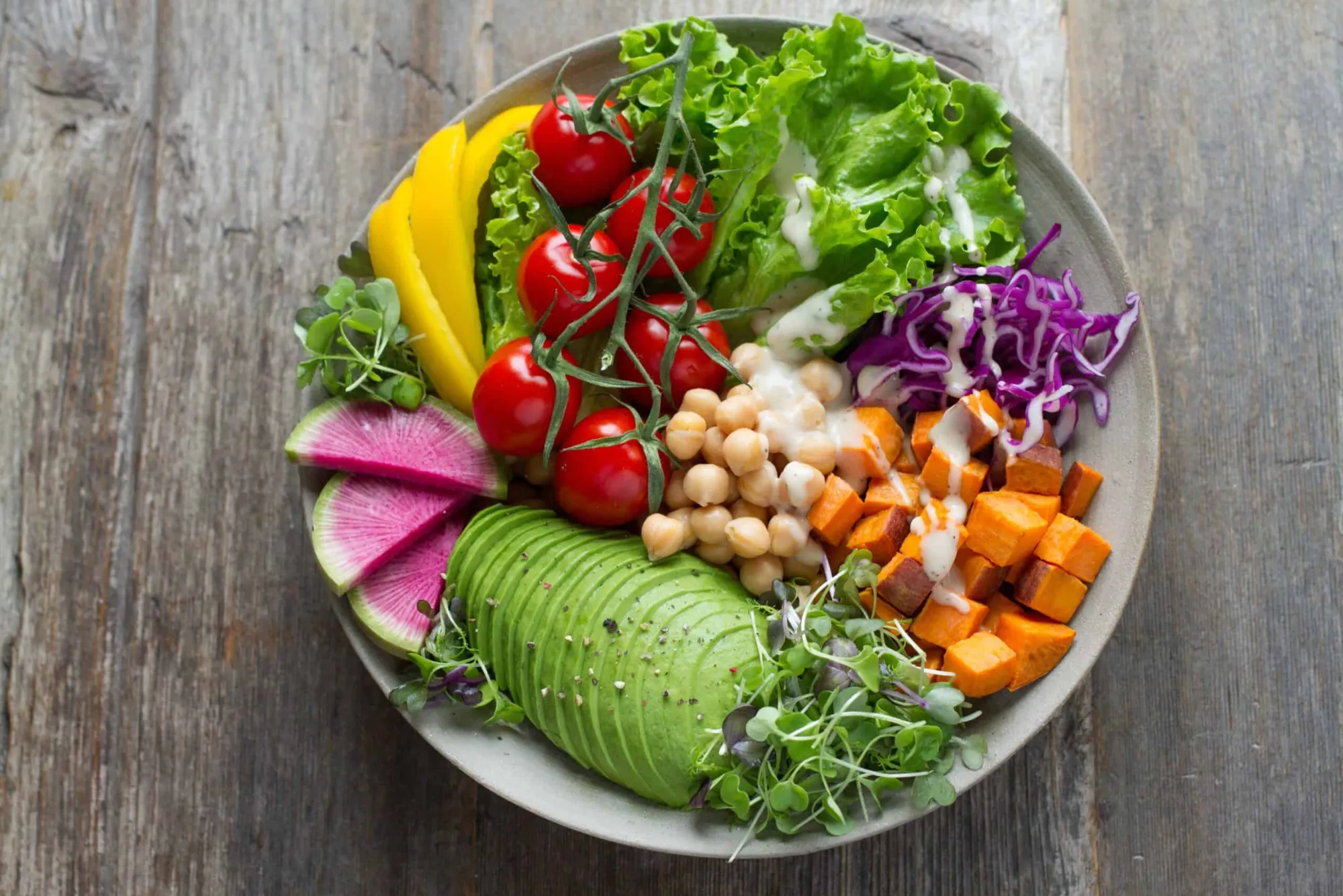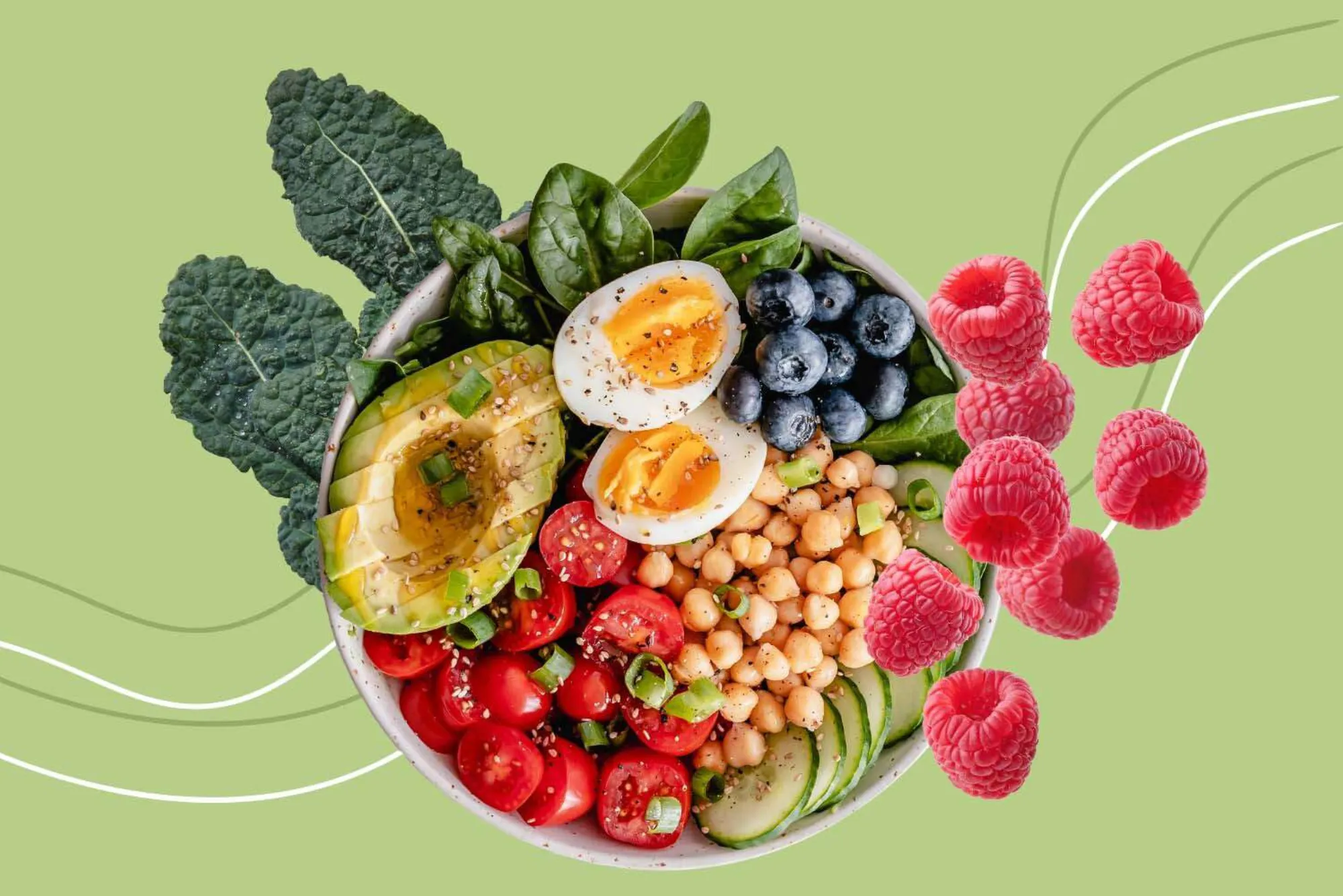A plant-based diet focuses on consuming foods primarily from plants. This includes not only fruits and vegetables but also nuts, seeds, oils, whole grains, legumes, and beans. While some individuals might avoid animal products altogether (vegan), others may include small amounts of animal products (vegetarian or flexitarian). In recent years, the plant-based diet has gained popularity due to its numerous health benefits, environmental impact, and ethical considerations.
What is a Plant-Based Diet?
A plant-based diet is a nutritional approach that prioritizes foods derived from plants while minimizing or eliminating animal products. The primary components of this diet include:
- Fruits and Vegetables: Fresh, frozen, or dried produce that provides essential vitamins and minerals.
- Whole Grains: Foods like brown rice, quinoa, and whole wheat that are high in fiber.
- Legumes and Beans: Excellent sources of protein and fiber, including lentils, chickpeas, and black beans.
- Nuts and Seeds: Healthy fats and proteins found in almonds, walnuts, flaxseeds, and chia seeds.

Types of Plant-Based Diets
- Vegan: Excludes all animal products, including meat, dairy, and eggs.
- Vegetarian: Excludes meat but may include dairy and eggs.
- Flexitarian: Primarily plant-based but allows occasional meat or fish.
Benefits of a Plant-Based Diet
Health Benefits
Weight Management: Studies show that individuals on a plant-based diet tend to maintain a healthier weight due to higher fiber intake and lower caloric density.
Heart Health: Plant-based diets are linked to lower cholesterol levels, reducing the risk of heart disease.
Diabetes Management: Consuming whole, unprocessed foods can improve blood sugar control and reduce the risk of type 2 diabetes.
Improved Digestion: High fiber content from fruits and vegetables promotes gut health and regular bowel movements.
Environmental Benefits
Adopting a plant-based diet significantly reduces one’s carbon footprint. Animal agriculture is a major contributor to greenhouse gas emissions, deforestation, and water usage. By choosing plant-based foods, individuals can help conserve vital resources.
Ethical Considerations
Many people choose plant-based diets for ethical reasons, advocating for animal welfare. By reducing the demand for animal products, consumers can support more humane treatment of animals and promote sustainable food practices.
Nutritional Considerations
While a plant-based diet offers numerous benefits, it’s essential to ensure it is nutritionally balanced. Key nutrients to focus on include:
| Nutrient | Plant-Based Sources |
|---|---|
| Protein | Lentils, chickpeas, quinoa, nuts |
| Vitamin B12 | Fortified cereals, nutritional yeast |
| Iron | Spinach, lentils, fortified cereals |
| Calcium | Almonds, broccoli, fortified plant milk |
| Omega-3 Fatty Acids | Flaxseeds, chia seeds, walnuts |
Addressing Common Concerns
Many people worry about protein intake on a plant-based diet. However, ample protein sources, such as legumes, nuts, and whole grains, can easily meet daily requirements. It’s crucial to plan meals to ensure adequate intake of essential vitamins and minerals.
Meal Planning and Preparation
Transitioning to a plant-based diet can seem daunting, but with a bit of planning, it becomes manageable. Here are some tips for successful meal planning:
- Start Gradually: Introduce more plant-based meals into your diet each week.
- Stock Your Kitchen: Keep a variety of plant-based staples on hand, such as beans, grains, and vegetables.
- Batch Cooking: Prepare large portions of meals and freeze leftovers for quick access on busy days.

Sample Meal Plan
- Breakfast: Overnight oats topped with fruits and nuts
- Lunch: Quinoa salad with mixed vegetables and a lemon dressing
- Dinner: Stir-fried tofu with broccoli and brown rice
- Snacks: Hummus with carrot sticks, mixed nuts
Recipes
Breakfast
- Green Smoothie: Blend spinach, banana, almond milk, and flaxseed for a nutritious start.
Lunch
- Chickpea Salad: Mix chickpeas, cucumber, tomatoes, and tahini dressing for a refreshing meal.
Dinner
- Vegetable Stir-Fry: Sauté seasonal vegetables with tofu and serve over quinoa.
Snacks
- Energy Balls: Combine oats, nut butter, and honey for a quick, healthy snack.
FAQs
What can I eat on a plant-based diet?
You can eat fruits, vegetables, whole grains, legumes, nuts, and seeds. Avoid or limit animal products.
How do I get enough protein?
Include a variety of protein-rich foods like legumes, tofu, quinoa, and nuts in your diet.
Is a plant-based diet suitable for everyone?
Yes, with proper planning, a plant-based diet can meet the nutritional needs of people at different life stages, including children and pregnant women.
Can I still eat out on a plant-based diet?
Absolutely! Many restaurants now offer plant-based options, and you can always ask for modifications to suit your dietary preferences.
How can I transition to a plant-based diet?
Start by gradually incorporating more plant-based meals into your diet and explore new recipes and foods.
Community and Resources
Engaging with communities, either online or in-person, can provide support and inspiration. Consider joining forums or local groups focused on plant-based living. Additionally, numerous resources, including cookbooks and documentaries, can enhance your knowledge and experience.
Adopting a plant-based diet can lead to numerous health benefits, promote environmental sustainability, and align with ethical values. By focusing on whole, unprocessed foods, individuals can enjoy a diverse and satisfying diet while making a positive impact on their health and the planet. Whether you’re fully committing to a vegan lifestyle or simply adding more plant-based meals to your routine, the journey can be delicious and rewarding.




